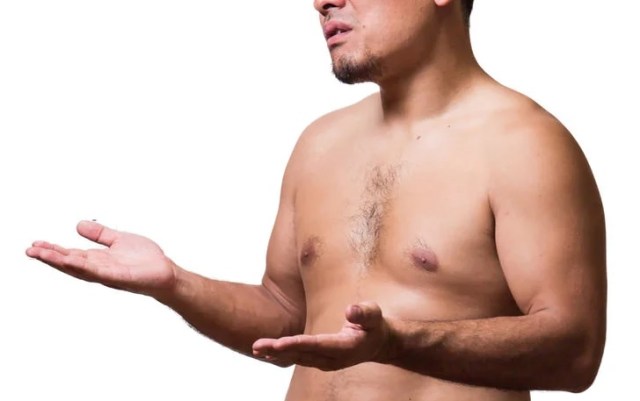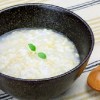
Loincloths at least, gentlemen, says shrine in change of policy in how to ask the gods for a good harvest and plenty of fish.
Ever year, Owase Shrine, in the town of Owase, Mie Prefecture, holds its Yaya Matsuri, or Yaya Festival. As with many Shinto festivals, part the proceedings include prayers to the gods asking for abundant harvests for farmers and bounteous catches for fisherman, ensuring the health and prosperity of the community in the year to come.
Part of this request to the divine powers involves a purification ritual called korikaki, in which male festival participants plunge into the waters of the ocean and nearby rivers after nightfall. A startling side note, though, is that these nighttime dips don’t take place during Japan’s sweltering summer, but at the start of February, when overnight temperatures can dip down close to freezing. What’s also startling, for those unfamiliar with the Yaya Festival, is that the men jumping into those chilly waters are completely naked.
Still, for nearly 300 years, Owase has been able to find men willing to strip down and jump in.
▼ Video of the Yaya Matsuri koriaki, with censor mosaics in place
As of this year, though, that tradition is ending.
Last year, the Owase Shrine Parishioners Association was cautioned by the Mie Prefectural Police about the potential online diffusion of photos from the event showing naked participants, which could then lead to legal/criminal complications. After discussing the situation, the parishioners association has come to the decision to require korikaki participants to wear shorts, swimsuits, loincloths, or other articles of clothing which will conceal their manly bits before jumping into the water. This policy will remain in place going forward.
“In order to preserve our traditions, we want to make what revisions that we can,” says Atsushi Naka, head of the parishioners association. “We hope that the people of [the community in which the festival takes place] will understand.
As evidenced by the above video, the naked portion of the Yaya Matsuri isn’t a secret. There’s officially sanctioned media coverage, and private photography/filming doesn’t appear to be banned either. The concern raised by the Mie Prefectural Police, though, involves photos from the festival being posted on social media platforms, where regulations regarding censoring and privacy clearances may not be as strictly enforced.
It’s worth noting that the decision to require clothing doesn’t appear to be something that local residents are clamoring for, presumably because the surrounding community has had three centuries to get used to the annual mid-winter skinny dips. Ostensibly, the Yaya Festival may have been able to continue with the naked korikaki by banning photography/filming during that portion of the festivities, though that may have negatively impacted the visibility of the event as a whole and reduced its ability to attract visitors and contribute to a sense of local pride.
This year’s Yaya Matsuri is scheduled for February 1-5, though we’ll likely have to wait a few more months to see if the lack of nudity is still able to convince the gods to grant their blessings to Owase’s fields and fishing spots.
Source: Livedoor News/Kyodo via Jin, NHK News Web
Top image: Pakutaso
● Want to hear about SoraNews24’s latest articles as soon as they’re published? Follow us on Facebook and Twitter!

 The most crowded place in Tokyo? Might be the Kanda Matsuri festival, but it’s still awesome
The most crowded place in Tokyo? Might be the Kanda Matsuri festival, but it’s still awesome Japan has a festival where they straight-up throw dudes into a fire【Videos】
Japan has a festival where they straight-up throw dudes into a fire【Videos】 Japanese shrine maidens in Osaka spotted wearing unusual costumes during winter
Japanese shrine maidens in Osaka spotted wearing unusual costumes during winter Shimotsuki Matsuri: The extraordinary winter festival that inspired Ghibli’s ‘Spirited Away’
Shimotsuki Matsuri: The extraordinary winter festival that inspired Ghibli’s ‘Spirited Away’ Akutai Matsuri: Japan’s Verbal Abuse Festival, where insults and bad behaviour are encouraged
Akutai Matsuri: Japan’s Verbal Abuse Festival, where insults and bad behaviour are encouraged Japan’s new difficult-to-drink-from beer glass protects your liver, but it’s a brutal experience
Japan’s new difficult-to-drink-from beer glass protects your liver, but it’s a brutal experience Hello, cosmetics! Clinique teams up with Hello Kitty this summer for first-time collaboration
Hello, cosmetics! Clinique teams up with Hello Kitty this summer for first-time collaboration How to order snacks on a Shinkansen bullet train in Japan
How to order snacks on a Shinkansen bullet train in Japan Demon Slayer: Kimetsu no Yaiba gets new roller coaster attractions and food at Universal Studios Japan
Demon Slayer: Kimetsu no Yaiba gets new roller coaster attractions and food at Universal Studios Japan New samurai glasses are Japan’s latest weird must-have souvenir
New samurai glasses are Japan’s latest weird must-have souvenir Burger King Japan suddenly adds Dr. Pepper and Dr. Pepper floats to its menu nationwide
Burger King Japan suddenly adds Dr. Pepper and Dr. Pepper floats to its menu nationwide New Nintendo Lego kit is a beautiful piece of moving pixel art of Mario and Yoshi【Photos】
New Nintendo Lego kit is a beautiful piece of moving pixel art of Mario and Yoshi【Photos】 What do you eat when you catch a cold? We asked 11 of our Japanese reporters
What do you eat when you catch a cold? We asked 11 of our Japanese reporters High-fashion Totoro cuddle purse is like an elegant stroll in the forest【Photos】
High-fashion Totoro cuddle purse is like an elegant stroll in the forest【Photos】 Why Japanese doesn’t need swear words
Why Japanese doesn’t need swear words Nintendo history you can feel – Super NES, N64, and GameCube controllers become capsule toys
Nintendo history you can feel – Super NES, N64, and GameCube controllers become capsule toys “The most Delicious Cup Noodle in history” – Japan’s French Cup Noodle wins our heart【Taste test】
“The most Delicious Cup Noodle in history” – Japan’s French Cup Noodle wins our heart【Taste test】 Starbucks releases a cute Frappuccino and Unicorn Cake…but not in Japan
Starbucks releases a cute Frappuccino and Unicorn Cake…but not in Japan Kyoto Tower mascot termination reveals dark side behind cute Japanese characters
Kyoto Tower mascot termination reveals dark side behind cute Japanese characters McDonald’s Japan’s Soft Twist Tower: A phantom ice cream only sold at select branches
McDonald’s Japan’s Soft Twist Tower: A phantom ice cream only sold at select branches Yabai Ramen: What makes this Japanese ramen so dangerous?
Yabai Ramen: What makes this Japanese ramen so dangerous? Finally! Nintendo Japan expands Switch 8-bit controller sales to everybody, Online member or not
Finally! Nintendo Japan expands Switch 8-bit controller sales to everybody, Online member or not Japanese government wants to build luxury resorts in all national parks for foreign tourists
Japanese government wants to build luxury resorts in all national parks for foreign tourists To combat declining birth rate, Japan to begin offering “Breeding Visas” to foreigners
To combat declining birth rate, Japan to begin offering “Breeding Visas” to foreigners 10 things you should buy at 7-Eleven in Japan
10 things you should buy at 7-Eleven in Japan Studio Ghibli releases anime heroine cosplay dresses that are super comfy to wear
Studio Ghibli releases anime heroine cosplay dresses that are super comfy to wear Woman charged for driving suitcase without a license in Osaka
Woman charged for driving suitcase without a license in Osaka Studio Ghibli unveils My Neighbour Totoro miniature house model
Studio Ghibli unveils My Neighbour Totoro miniature house model Kyoto experiencing problems with foreign tourists not paying for bus fares, but not on purpose
Kyoto experiencing problems with foreign tourists not paying for bus fares, but not on purpose Fighting mild hunger with a Japanese soda that turns into jelly in the stomach【Taste test】
Fighting mild hunger with a Japanese soda that turns into jelly in the stomach【Taste test】 Studio Ghibli’s Howl’s Moving Castle tapestry unveiled in Japan for first time
Studio Ghibli’s Howl’s Moving Castle tapestry unveiled in Japan for first time McDonald’s new Happy Meals offer up cute and practical Sanrio lifestyle goods
McDonald’s new Happy Meals offer up cute and practical Sanrio lifestyle goods Sales of Japan’s most convenient train ticket/shopping payment cards suspended indefinitely
Sales of Japan’s most convenient train ticket/shopping payment cards suspended indefinitely Sold-out Studio Ghibli desktop humidifiers are back so Totoro can help you through the dry season
Sold-out Studio Ghibli desktop humidifiers are back so Totoro can help you through the dry season Japanese government to make first change to romanization spelling rules since the 1950s
Japanese government to make first change to romanization spelling rules since the 1950s Foreigner’s request for help in Tokyo makes us sad for the state of society
Foreigner’s request for help in Tokyo makes us sad for the state of society Ghibli founders Toshio Suzuki and Hayao Miyazaki contribute to Japanese whisky Totoro label design
Ghibli founders Toshio Suzuki and Hayao Miyazaki contribute to Japanese whisky Totoro label design Doraemon found buried at sea as scene from 1993 anime becomes real life【Photos】
Doraemon found buried at sea as scene from 1993 anime becomes real life【Photos】 Tokyo’s most famous Starbucks is closed
Tokyo’s most famous Starbucks is closed Princesses, fruits, and blacksmiths: Study reveals the 30 most unusual family names in Japan
Princesses, fruits, and blacksmiths: Study reveals the 30 most unusual family names in Japan Japanese lawyer comments on legality of tattoo ban at hot springs, netizens share thoughts too
Japanese lawyer comments on legality of tattoo ban at hot springs, netizens share thoughts too Grooming industry experts say an increasing number of Japanese men are shaving their pubic hair
Grooming industry experts say an increasing number of Japanese men are shaving their pubic hair Gigantic geyser erupts from Shinto shrine’s forest on the night before its summer festival【Video】
Gigantic geyser erupts from Shinto shrine’s forest on the night before its summer festival【Video】 Japanese miko shrine maidens turn into off-road racing queens in new commercial 【Video】
Japanese miko shrine maidens turn into off-road racing queens in new commercial 【Video】 Exhibition on the 1,500 year-history of traditional Japanese women’s clothing to open in Shibuya
Exhibition on the 1,500 year-history of traditional Japanese women’s clothing to open in Shibuya How to enjoy Japanese idol music if you hate its sweetness: Pretend they’re not singing about YOU
How to enjoy Japanese idol music if you hate its sweetness: Pretend they’re not singing about YOU Tasty art brought to life — enjoy unique recreations of illustrated food at the Pixiv Festival!
Tasty art brought to life — enjoy unique recreations of illustrated food at the Pixiv Festival! Host your very own Japanese summer festival with these DIY carnival game stands
Host your very own Japanese summer festival with these DIY carnival game stands New hair pins let you look like you’ve been stabbed in the head with a classic Japanese icon
New hair pins let you look like you’ve been stabbed in the head with a classic Japanese icon Hanazono Jinja Shrine: Lanterns, stalls and rakes at annual Tori no Ichi cock festival in Tokyo
Hanazono Jinja Shrine: Lanterns, stalls and rakes at annual Tori no Ichi cock festival in Tokyo Tokyo Comic-Con reverses policy, will allow male cosplayers to dress as female characters
Tokyo Comic-Con reverses policy, will allow male cosplayers to dress as female characters Izumo’s Starbucks, a stone’s throw away from the gathering place of Shinto’s eight million gods
Izumo’s Starbucks, a stone’s throw away from the gathering place of Shinto’s eight million gods
Leave a Reply